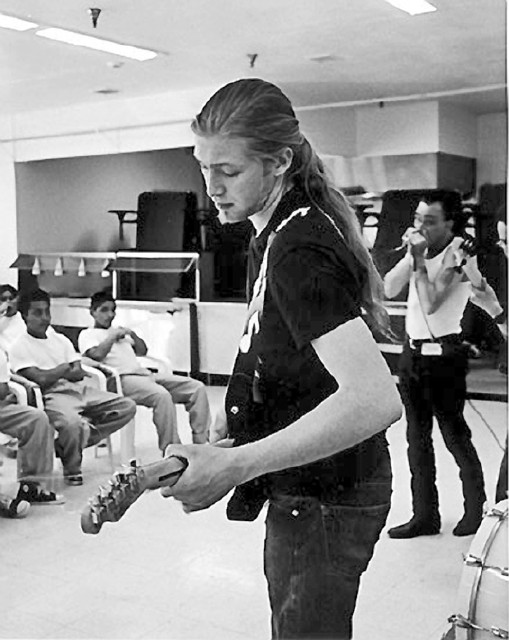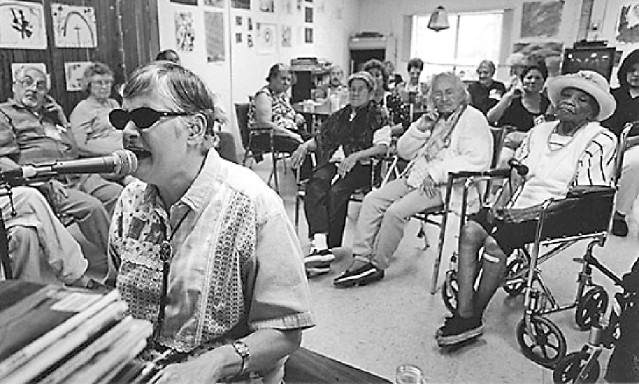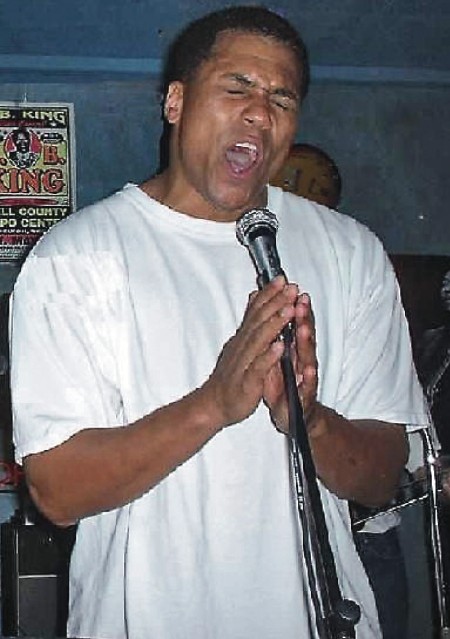It’s the kind of story that calls out to moviemakers. Eric Bland is the son of a minister, a gospel singer, known in Albuquerque for his work in choirs. In walks Gary Millhollon, a professional blues guitarist who worked out of Austin, Texas, before moving here three years ago. Millhollon, who is white, is fortunate enough to join the Grant Chapel African Methodist Episcopal Church, home one of the best choirs around. The blues guitarist and the gospel singer meet. "He invited me over one day to sing some tracks and have some fun," Bland says. "He had equipment and things in his garage. We were just messing around. Well, messing around got kind of serious." Today you can also call Bland “Brother E.” He fronts a six-piece band called the Blue Rhythm Kings. They mostly perform works of the greats—though in grand soul and blues tradition, always with their own spin—from the likes of Bill Withers, Otis Redding, B.B. King, Robert Cray and James Brown, among others. Brother E and the Blue Rhythm Kings have a great following from all walks of life in Albuquerque, and the group has played all kinds of venues. The transition from sacred to secular hasn’t been all that difficult for Bland. He says he doesn’t sing any differently in the choir than when he takes the stage at Puccini’s Golden West. “I try to sing my best whatever I do,” he says. “I never had people jump and cry when I sing ‘The Thrill is Gone’ the way they do when I sing ‘Amazing Grace.’ It has a different effect, because it has a different meaning. Anyone who knows me knows that it always comes from my soul and my heart.” You sing from the soul when you sing gospel, and you sing from the soul when you sing the blues, he says. The difference is that blues is all about life, he says. That focus on hardship and the ability to uplift is part of why David Lescht of Outside In booked Brother E and the Blue Rhythm Kings to play at the Grants Federal Women’s Correction Facility for a Juneteenth concert on June 18. “It’s a therapeutic situation for people who are in difficult circumstances,” Lescht says. “It allows them to celebrate and makes them feel very human, especially when it’s a cultural thing. We choose bands that can connect in a meaningful way.”Juneteenth commemorates the abolishment of slavery in the United States. Every year, Outside In, a nonprofit organization that brings music to people in all types of confinement, puts on a Juneteenth show because of the unusually high number of African-American women incarcerated in our state, Lescht says. He also puts together shows on Cinco de Mayo, Christmas and Halloween. The organization manages to bring out some pretty well-known groups. Ozomatli played the prison in May. Michael Franti and Spearhead brought the women to tears when they played, and Franti commented to the crowd that he felt selfish about it, “because it did way more for him than it did for the women,” Lescht says. Still, some people have a problem with the notion of entertaining prisoners. But Lescht doesn’t consider it entertainment. “Live music is a powerful healing force,” he says. Bland, who also happens to work as a corrections officer at the Metropolitan Detention Center, says jail can be a place of rehabilitation if you take advantage of it. “I think people are human,” he says. “They’re not dogs, and they’re not cats. If they have been obedient, and if the warden wants to grant something to them for it, that’s wonderful.” We all come to music for comfort, Bland adds, and nothing comes for free in jail. “They must have earned it, and anything earned is great.”
For more on Brother E and the Blue Rhythm Kings, go to www.bluerhythmkings.com. For more on Outside In, go to www.outsideinproductions.org.











